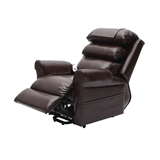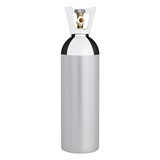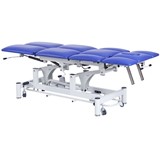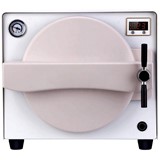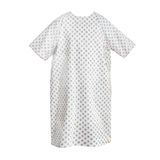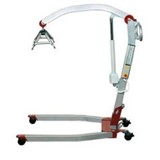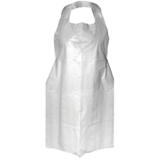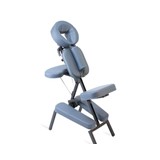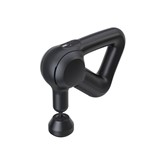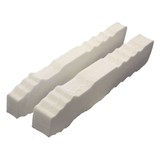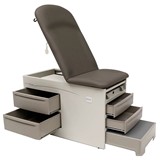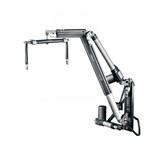"Clinical research is crucial to better health delivery and access to a more efficient health system for the benefit of all Australians," Hughes said.
"The clinical evidence supporting remedial and therapeutic massage is substantial but as a low hanging fruit there are still many opportunities in research that would benefit the health care needs of many Australians."
An RMIT Study commissioned by the AAMT found that further research into the benefits of massage therapy for infants, depression and post-natal depression, labour pain, fibromyalgia, premenstrual syndrome, urinary symptoms in multiple sclerosis, myofascial pain and knee osteoarthritis, presented many opportunities.
"It is in these areas of health care that massage can offer even greater benefit and where we hope some of the Medical Research Fund announced in the 2014 federal budget will be directed," Hughes said.
"Unlike other sectors of health such as pharmacy, typified by a small number of large corporations with resources to conduct Cochrane level clinical trials, the massage sector is characterised by small businesses, and associations funded through membership.
Many studies into the effects of massage indicate that massage offers significant benefit as an intervention at the primary care stage that provides relief from the symptoms of conditions of injury, chronic illness and muscular skeletal conditions affecting the aged.
While such trials and investigations provide highly valuable data, only a small proportion can be included in Cochrane-type analyses of efficacy and conclusive clinical benefit.
Until recently, few clinical trials examined or measured the biological effects of massage, focusing on subject reporting by the patients in the areas of pain, stress, sleep anxiety, and general wellbeing.
"Higher academic qualifications within the massage sector required to attract funding from the NHMRC or similar bodies is not common, limiting opportunities for robustly conducted trials that would shed greater light on the benefits of massage as an evidence-based modality.
"In response, the AAMT has supported a world-first researcher development program — the International Complementary Medicine (CM) Leadership and Capacity Building program with the Sydney's University of Technology. This offers the opportunity to enhance research capabilities in the areas of massage that promise significant benefits for patients and the health sector," Hughes said.
"AAMT funding is limited and for Australia as a developed nation, with a high standard of health care and a leading exporter of education, the opportunity to become a world leader in this field of healthcare is self-evident, given the growing demand for massage, and the growing and partially satisfied demand for clinical evidence.
"Both federal and state governments have an important and valuable role to play in massage based medical research and we hope the Medical Research Fund announced by the Federal Government will be available to further the development of massage and ensure patients have access to choice of the best health care options available," Hughes concluded.
- Suppliers
- New to MedicalSearch? Book a Demo
- Advertise with us
- Login
- Email Marketing
- Buyers
- Get Quotes
- Articles & Ideas
- Login
- Subscribe to newsletter
- My Details
- Get Quotes
- Accident & Emergency Care
- Aged Care & Disability
- Anaesthesia & Respiratory Care
- Beauty & Wellness
- Cardiology & Cardiac Surgery
- Dental Care & Oral Surgery
- Diagnostic Instruments & Medical Imaging
- Disinfection & Sterilisation
- ENT & Audiology
- Gynaecology & Obstetrics
- Homecare & Consumer Medical
- Hospital Equipment & Supplies
- Intensive Care Unit
- Laboratory & Pathology
- Medical Apparel
- Medical Devices & Products
- Medical Fridges & Freezers
- Medical Storage & Filing
- Medical Waste Management
- Optometry & Ophthalmology
- Orthopaedics & Podiatry
- Paediatrics & Neonatology
- Patient Monitoring & Management
- Physiotherapy & Rehabilitation
- PPE & Infection Control
- Single Use Medical Consumables
- Surgical Tools & Supplies
- Treatment Beds, Tables & Couches
- Veterinary Equipment
- Wheelchairs & Mobility Aids
- Get Quotes
- Accident & Emergency Care
- Aged Care & Disability
- Anaesthesia & Respiratory Care
- Beauty & Wellness
- Cardiology & Cardiac Surgery
- Dental Care & Oral Surgery
- Diagnostic Instruments & Medical Imaging
- Disinfection & Sterilisation
- ENT & Audiology
- Gynaecology & Obstetrics
- Homecare & Consumer Medical
- Hospital Equipment & Supplies
- Intensive Care Unit
- Laboratory & Pathology
- Medical Apparel
- Medical Devices & Products
- Medical Fridges & Freezers
- Medical Storage & Filing
- Medical Waste Management
- Optometry & Ophthalmology
- Orthopaedics & Podiatry
- Paediatrics & Neonatology
- Patient Monitoring & Management
- Physiotherapy & Rehabilitation
- PPE & Infection Control
- Single Use Medical Consumables
- Surgical Tools & Supplies
- Treatment Beds, Tables & Couches
- Veterinary Equipment
- Wheelchairs & Mobility Aids
Trusted by 500,000+ Australian medical buyers
Buyers
- Discover products & solutions
- Login
- Subscribe To Newsletter
- Browse All Products
- Read Articles
Suppliers
Advertise
- Promote your products & solutions
- New to MedicalSearch? Book a Demo
- Login / Forgot Password
- Advertise Your Products
- Success Stories
- Email Marketing
- Suppliers
- Advertise with us
- Login
- Email Marketing
- Buyers
- Get Quotes
- Articles & Ideas
- Login
- Subscribe to newsletter
- My Details
Get Quotes
- Accident & Emergency Care
- Aged Care & Disability
- Anaesthesia & Respiratory Care
- Beauty & Wellness
- Cardiology & Cardiac Surgery
- Dental Care & Oral Surgery
- Diagnostic Instruments & Medical Imaging
- Disinfection & Sterilisation
- ENT & Audiology
- Gynaecology & Obstetrics
- Homecare & Consumer Medical
- Hospital Equipment & Supplies
- Intensive Care Unit
- Laboratory & Pathology
- Medical Apparel
- Medical Devices & Products
- Medical Fridges & Freezers
- Medical Storage & Filing
- Medical Waste Management
- Optometry & Ophthalmology
- Orthopaedics & Podiatry
- Paediatrics & Neonatology
- Patient Monitoring & Management
- Physiotherapy & Rehabilitation
- PPE & Infection Control
- Single Use Medical Consumables
- Surgical Tools & Supplies
- Treatment Beds, Tables & Couches
- Veterinary Equipment
- Wheelchairs & Mobility Aids
Get Quotes
- Accident & Emergency Care
- Aged Care & Disability
- Anaesthesia & Respiratory Care
- Beauty & Wellness
- Cardiology & Cardiac Surgery
- Dental Care & Oral Surgery
- Diagnostic Instruments & Medical Imaging
- Disinfection & Sterilisation
- ENT & Audiology
- Gynaecology & Obstetrics
- Homecare & Consumer Medical
- Hospital Equipment & Supplies
- Intensive Care Unit
- Laboratory & Pathology
- Medical Apparel
- Medical Devices & Products
- Medical Fridges & Freezers
- Medical Storage & Filing
- Medical Waste Management
- Optometry & Ophthalmology
- Orthopaedics & Podiatry
- Paediatrics & Neonatology
- Patient Monitoring & Management
- Physiotherapy & Rehabilitation
- PPE & Infection Control
- Single Use Medical Consumables
- Surgical Tools & Supplies
- Treatment Beds, Tables & Couches
- Veterinary Equipment
- Wheelchairs & Mobility Aids
Trusted by 500,000+ Australian medical buyers


